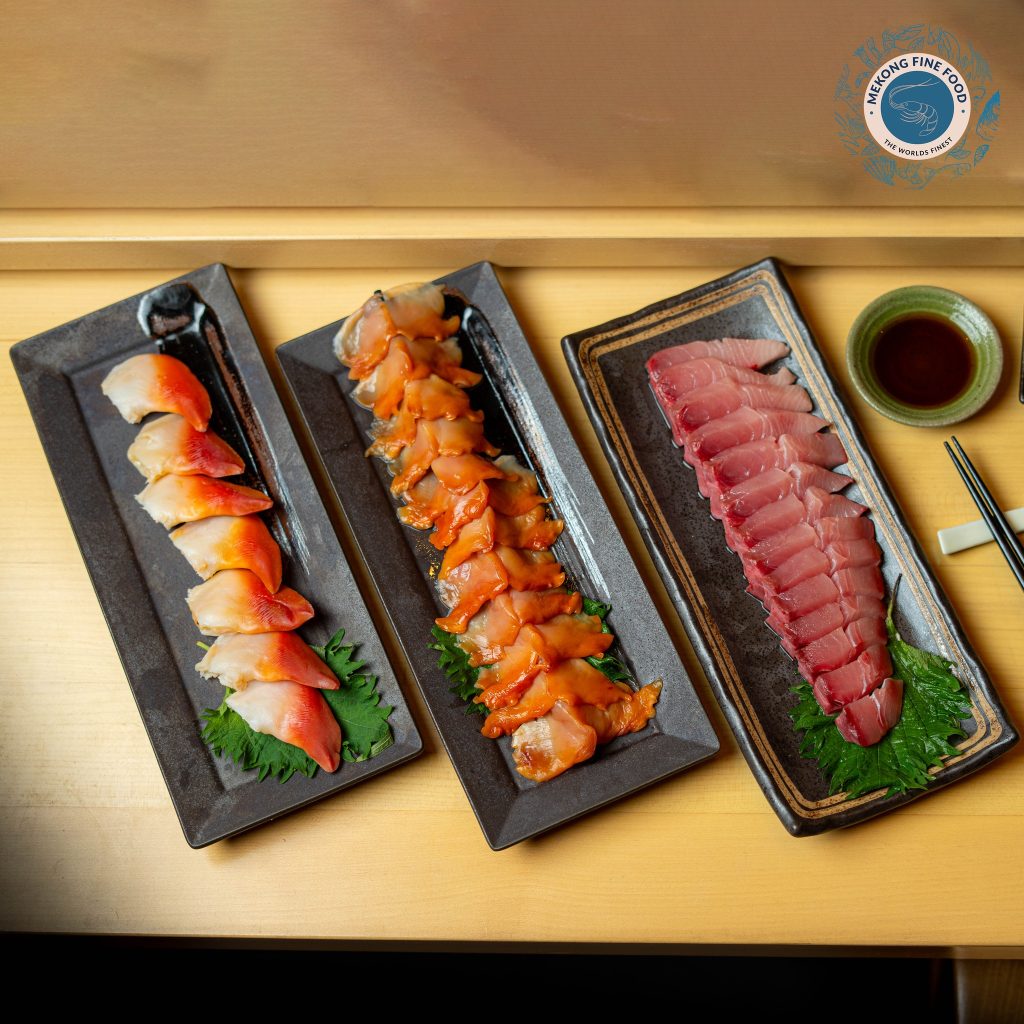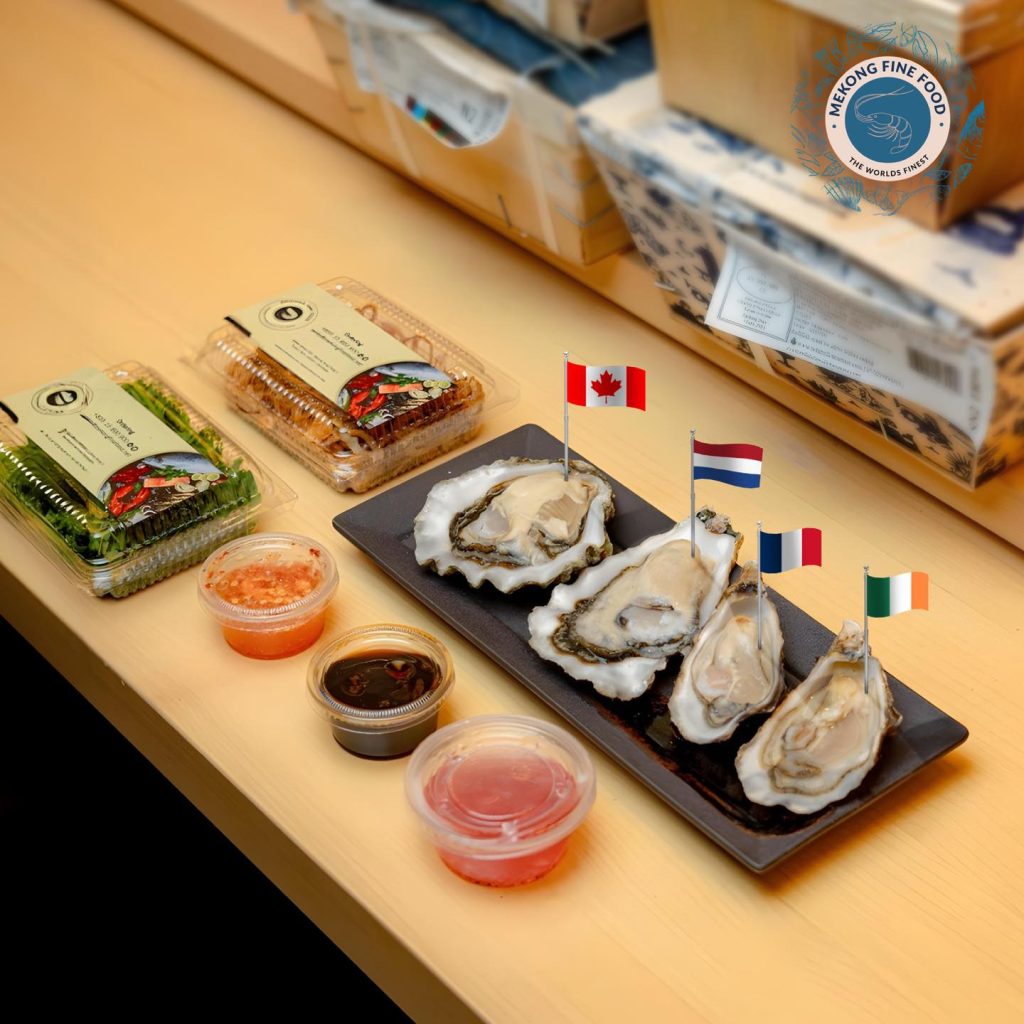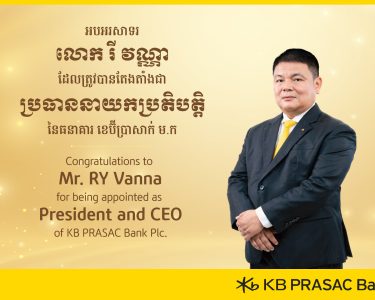By Stew Post
Senior Communciations Officer Stew Post met with Sato Moeun, Founder and COO of Mekong Fine Foods. Speaking at the firm’s Phnom Penh offices, their conversation explored Sato’s lifelong background in the food and beverage industry, the opportunities and challenges of operating in Cambodia’s evolving market, and where her firm fits into this space.
She also shared some words of wisdom for small businesses looking to seize the moment and grow their operations.
Read more: EuroCham Cambodia Interview – Denis Barre, Co-Founder of Convergences Executive Search
Stew: Can you briefly introduce Mekong Fine Food and the services you provide?
Sato: Mekong Fine Food and its parent company NorKhmer Concepts is Cambodia’s leading supplier of premium seafood and gourmet fine foods. We serve a discerning clientele of luxury hotels, fine dining restaurants, embassies, top-tier retailers and private clients who demand high standards of quality and service across the country. We are proud to connect global producers with Cambodia’s top chefs and hospitality professionals. Whether it’s fresh Japanese seafood, fine European ingredients, or exclusive specialty items, our focus is to elevate dining experiences across the Cambodian hospitality industry.
We began as a passion project — an answer to the demand for higher quality, broader selection and new products in a growing market. We launched with a simple mission: to be the gateway for the world’s finest foods into Cambodia’s dynamic hospitality market. And we have quickly grown into the trusted partner for premium food distribution in Cambodia.

Stew: Can you give us some background on your company’s growth? How have you been able to scale up your business?
Sato: In just two years, we’ve grown from a startup to market leader. We formed our first hotel partnerships in September 2023 and began importing fresh Japanese seafood by November the same year. By early 2024, we expanded into Siem Reap, followed by a series of partnerships and exclusive distribution rights and the acquisition of assets and operations of one of our Japanese competitors. This August, we will open our third office in Sihanoukville.
What’s behind our growth? It’s a combination of strong commercial experience and long-standing relationships in Cambodia’s F&B and hospitality industries. My business partner and I are both hands-on — involved in everything from sourcing to client service. I’ve worked in this industry since I was a teenager — first in a kitchen, then in front of house, then in sales. I’ve served clients directly and I’ve done logistics with my own hands. That background means I understand our business from every angle, and I care deeply about every customer.
We also have an amazing, mostly-female Khmer team who are smart, passionate, and hardworking. We’ve built a company that reflects our values — collaboration, excellence, and trust.
Stew: What are some of the key challenges that Cambodian SMEs face when it comes to scaling up their businesses? How can they overcome these challenges?
Sato: Finance is a major challenge. Most Cambodian SMEs, including ours in the beginning, don’t have access to traditional financing. Banks mostly lend against real estate — and as someone who grew up in poverty, I had no property, no land, nothing to offer as collateral. They don’t take the time to understand your business or your vision. Early on, I relied on personal savings and small loans from people who believed in me.
Fortunately, we very recently signed a financing agreement with the ADB Frontier fund, which supports high-potential SMEs in Cambodia and the region. It’s really a vote of confidence in what we’re building — but it also shows how hard it is for small businesses to grow without external support.
Another challenge is finding the right talent. Our core team is built from people I’ve known and trusted for years, but as we grow, we need new talent who share our mindset and can fit into our culture. It’s not just about skills — it’s about attitude, work ethic, and alignment with our mission. If we want to grow as a country, we must grow our people.

Stew: How important is it to develop a large business network when it comes to growing your business?
Sato: A strong network is absolutely essential. Cambodia is a relationship-driven market. Our earliest clients trusted me because of personal connections from my time in hospitality. Today, more and more people approach us — suppliers who want us to represent their products, or chefs who hear about our service and want to work with us.
But we also want to expand internationally. Our vision is to bring world-class products into Cambodia, and to do that, we need to reach more producers and brands in Europe, Japan, and elsewhere. That’s where strong international networking and exposure is crucial — and it’s where platforms like ASEAN Access can really help.
In my case, networking didn’t come from business school. It came from life. When I worked as a waitress, or in sales at BMW, I always built relationships. I treated people with respect, listened, and followed through. I think that’s the real foundation of a network — trust and consistency over time.
Stew: Based on your experience growing your business, what advice would you give to SMEs that want to expand?
Sato: Start with your clients. Understand what they need and go the extra mile to deliver. When the border conflict started and interrupted logistics earlier this month, we worked day and night to ensure our clients still received the products they ordered — because trust is everything.
Build a strong team. It’s not enough to just sell. You need solid operations, logistics, and finance if you want to grow. And you can’t do it alone. Treat your team well — they are your company, not just your employees.
Do things the official way. Register your company, pay taxes, and follow the law. It will help you in the long run, especially as more clients and investors only want to work with formal, transparent businesses.
And finally, always stay humble. My journey has not been easy, but I’ve had the support of clients, suppliers, and our team — and I never forget that. If you keep learning and stay grounded, success will follow.





